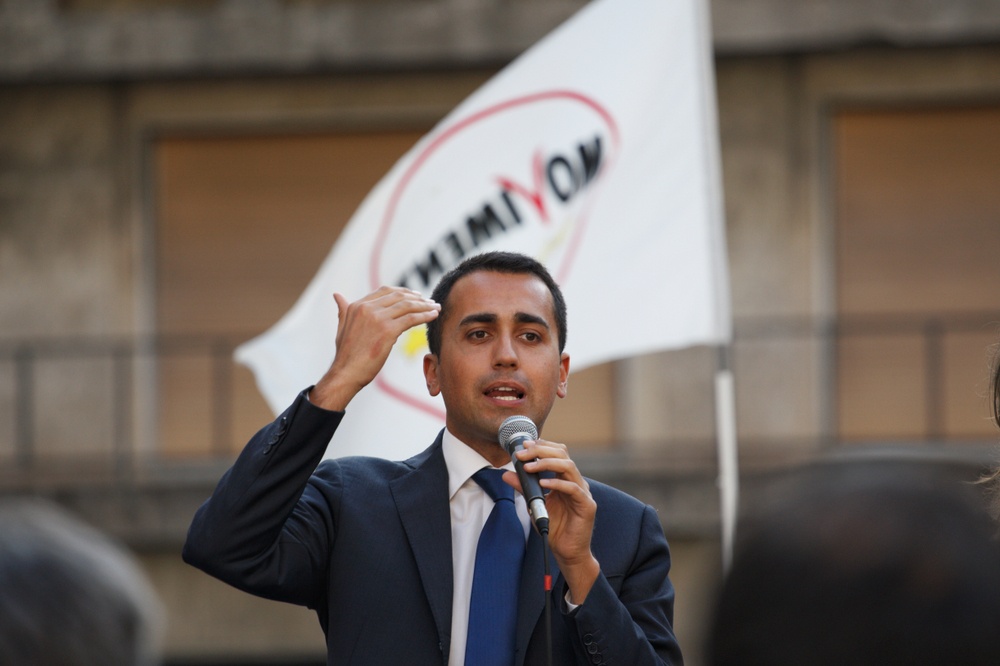Take Note AOC: Right-Wing Italy Just Introduced a ‘Citizens’ Income’ for 5 Million in Poverty

Italy's right-leaning movement is pushing for a guaranteed citizens' income for the those in poverty. | Source: Shutterstock
As Fox News and right-wing talking heads rail against AOC and the largely invented and self-serving rise of socialism that they want to claim is jeopardizing the American way of life, in Italy a new ‘citizens’ income’ has been introduced that provides a safety net for the poor.
What is the Citizens’ Income?
The citizens’ income is a cornerstone initiative of Italy’s Five Star Movement (M5S) which provides the country’s poorest citizens with a safety net that is intended to stop them from falling below the poverty line.
Those who are eligible for the citizens’ income must prove that their household income is less than the poverty line figure of €780 ($880) a month. Those who do fall below this line can claim up to that same amount as individuals and up to €1,300 for a family with two children.
The Five Star Movement – who share power in Italy with the far-right League – believe that this policy will alleviate poverty while also boosting consumer spending and spurring economic growth. It is expected to cost the Italian government €7.1bn in its first year, an outlay that almost saw the European commission sanction Italy because of the impact it has on the country’s 2019 budget.
Critics of the policy say that the citizens’ income is being rolled out too early as the part of the initiative that is designed to encourage claimants to find a job is not ready.
A ‘revolutionary’ scheme
The leader of the M5S, Luigi Di Maio, who also serves as Italy’s labor minister, has described the scheme as ‘revolutionary’ and believes it will bring much-needed relief and support to the estimated 5 million Italians currently living below the poverty line.

At the launch of the initiative, Di Maio said:
I have worked on this so much. Today we are keeping a promise. The state is finally dealing with the invisible people, those who have been on the margins of this country and the political debate.”
Citizens’ income not the same as AOC’s dream of guaranteed jobs
In the Green New Deal championed by AOC, a broad policy goal is to ‘guarantee a job with a family-sustaining wage, adequate family and medical leave, paid vacations, and retirement security to all people of the United States.’
Italy’s citizens’ income does not go so far, but it does essentially provide a basic free living income to those most in need.

The amount that citizens receive is free and not any kind of loan that will be repaid later, but it does come with some strings attached.
The first claimants will receive their income via a pre-paid debit card from next month onwards. At the outset, this card will only allow users to spend their money on food shopping and medication. Any money left over at the end of the month is taken off rather than carried over to the following month.
People receiving citizens’ income must also enroll in job training. If they turn down more than three job offers, they will no longer receive their benefits.
One potential major stumbling block, particularly for those with children, is that Di Maio has advised claimants to accept the first job they are offered. If not, they may be required to accept a job in a completely different part of the country.
A socialist sounding scheme introduced by a right-leaning, populist movement
In the U.S., left-leaning media outlets have enjoyed highlighting examples of how a number of attempted AOC takedowns by right-wing talking heads have actually turned into excellent sounding and rational arguments for the policies they are trying to mock.
Commentators might use outraged voices when they speak, but when looked at without political spin, many of the ideas in AOC’s Green New Deal seem to make sense to people across the political spectrum , particularly those who are struggling to make ends meet.
This paradox is put into practice with Italy’s citizens’ income. The M5S has been negatively labeled by some commentators as a right-wing ‘populist’ party thanks to some of its views on immigration, but this scheme championed by them definitely has a leftist feel to it. The party’s strong focus on the environment is also something at odds with the kind of ethos you would expect from a right-leaning party.
It remains to be seen whether the citizens’ income will have the desired impact that the M5S are hoping for, but its very implementation could be a sign that the ways of addressing wider social issues do not necessarily have to rigidly adhere to preconceived political ideologies.